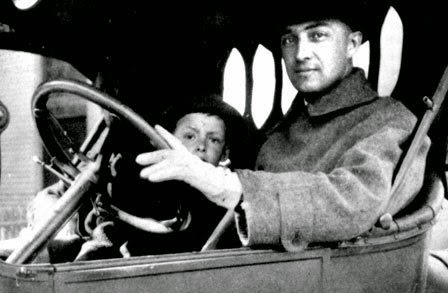
AG: There’s a very beautiful poem to America (by William Carlos Williams) called “To Elsie”. Considering how mixed-up everyone else was in their language, and how mixed-up they were in their desires, substituting desires for television with desire for a clear language, or practice of clear language, or substituting argument for clear language. [Allen reads Williams’ “To Elsie”]
TO ELSIE
The pure products of America
go crazy –
mountain-folk from Kentucky
or the ribbed north end of
Jersey
with its isolate lakes and
valleys, its deaf mutes, thieves,
old names
and promiscuity between
devil-may-care men who have taken
to railroading
out of sheer lust of adventure –
and young slatterns, bathed
in filth
from Monday to Saturday
to be tricked out that night
with gauds
from imaginations which have no
peasant traditions to give them
character
but flutter and flaunt
sheer rags – succumbing without
emotion
save numbed terror
under some hedge of choke-cherry
or viburnum –
which they cannot express –
Unless it be that marriage
perhaps
with a dash of Indian blood
will throw up a girl so desolate
so hemmed round
with disease or murder
that she’ll be rescued by an
agent –
reared by the state and
sent out at fifteen to work in
some hard-pressed
house in the suburbs –
some doctor’s family, some Elsie –
voluptuous water
expressing with broken
brain the truth about us
her great
ungainly hips and flopping breasts
addressed to cheap
jewellery
and rich young men with fine eyes
as if the earth under our feet
were
an excrement of some sky
and we degraded prisoners
destined
to hunger until we eat filth
while the imagination strains
after deer
going by fields of goldenrod in
the stifling heat of September
Somehow
it seems to destroy us
it is only in isolate flecks that
something
is given off
No one
to witness
and adjust, no one to drive the car.
Student: That’s called “Elsie”? “To Elsie”?
AG: Well, it’s (a) section – “To Elsie”. It’s on page 270 of the Collected Earlier Poems. That was one of the first I heard him read, I think. What was interesting, and relevant to what we’re talking about, in terms of working with the particular and accepting the particular – or accepting the self, (accepting the place where we are means accepting the suffering of the situation, as well as accepting the realization that we’ve all sold ourselves out for heaven, and sold the earth out, and are not appreciative of what we have already) – “as if the earth under our feet/ were /an excrement of some sky / and we degraded prisoners/ destined/ to hunger until we eat filth”
Student: Will you say something about the line “addressed to…
AG: “…rich young men with fine eyes”
Student: ..addressed to cheap ornamental jewellery or something…
AG: Her “hips and flopping breasts/ addressed to cheap/ jewellery” – (“addressed” means, as well, “dressed” – dressed with cheap jewellery) – but, addressed her sex and woman parts, “addressed” (to) “rich young men with fine eyes”, who take advantage of her – “giving herself to”.. as a fifteen-year-old hard-working maid, sent out by the State to work as a house-girl in a doctor’s office.. there’s the young prince of the family, coming along, up in the attic, to fuck her and give her a baby, (then need) to get an abortion, or whatever. So he was just noting the sociology of it (all)
Student : Yes I guess, but the word “addressed”, I was wondering…
AG: It’s interesting. “her great/ ungainly hips and flopping breasts/ addressed to cheap/ jewellery/ and rich young men with fine eyes/ as if the earth under our feet…” – as if that was the best she could do, as if that was all that fate had for her, as if that was all she could ask for.
Student: Uh-huh
AG: ..all that she knew to ask for. “It is only in isolate flecks that/ something/ is give off” – those are the poems. Those are his poems, I think he was referring to (as well as “isolate flecks” of perception – occcasionally – isolate flecks of perception when we penetrate through our illusions and our daydreams and see our own condition, or own lack-love, or own imprecision, our own denial of our desires and denial of our own perceptions). “No one to drive the car” – that’s a funny metaphor – metaphor? – I guess it’s a metaphor for that condition of American life he was talking about (using a very American image). No one to drive the car – of the mind, I guess.

